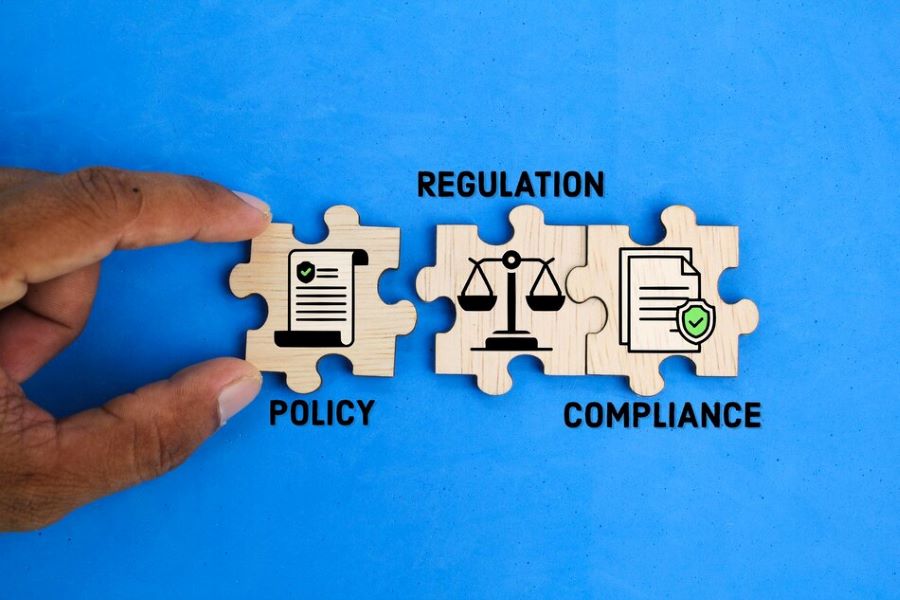The world is a hub for oil and gas due to its strategic position and financially solid industry. Investors from around the world flock to the Kingdom’s dynamic economy, making oil and gas broker options crucial. In this tutorial, we will examine the oil and gas trading industry, including the leading players, regulations, and broker selection.
The Value of Oil and Gas Brokers

Oil and gas trading is complex and dynamic, requiring experience. That is where oil and gas brokers matter. Brokers facilitate commodity transactions between buyers and sellers. Beyond execution, they offer market intelligence, risk management, and client insights.
Regulations
Before looking for brokers, you must comprehend the regulatory framework. Financial institution oversight and regulatory compliance fall to the Central Bank (CBB). Make sure an oil and gas broker is CBB-licensed and regulated. Regulatory compliance protects investors and the financial system with integrity and transparency.
Big Banks Trading Oil and Gas
Central banks trade oil and gas. These banks and financial firms allow investors to trade commodities. Let’s examine oil and gas trading financial players.
1. ABC Bank
ABC Bank has a commodities trading division that includes oil and gas. ABC Bank makes commodities trading easy for investors, with an emphasis on customer satisfaction and cutting-edge technology. Regular oil and gas market insights from the bank’s research and analysis team help investors make decisions.
2. Financial Harbors Investment Centre
The landmark Financial Harbor houses the BFH Investment Center. BFH trades oil and gas as part of its total investment services. Due to its strategic location, investors may easily access global markets, making it a popular choice for diversification.
3. Investcorp
Investcorp, a renowned alternative investment provider, is active in oil and gas. The company offers commodities trading and other investments. Investors seeking oil and gas exposure like Investcorp’s alternative investment knowledge and global reach.
Considerations Selecting an Oil and Gas Broker
Choosing the appropriate broker can significantly affect your oil and gas success. To help investors choose oil and gas brokers. let’s examine essential factors.
1. Regulation Compliance

As a reminder, investors should confirm that the Central Bank has authorized and regulated their broker. That guarantees the broker follows the law, giving investors confidence.
2. Trade Platforms and Tech
Oil and gas trading needs a reliable and efficient trading platform. Investors should evaluate the user interface, execution speed, and real-time market data. For mobile investors, device compatibility provides flexibility.
3. Study
Investors benefit from fast, reliable market research. Research reports, market assessments, and expert insights from brokers help investors make intelligent decisions. Investors should assess research quality and depth before choosing a broker.
4. Fees/Commissions
Cost management and return optimization require fee structure knowledge. Investors should ask about oil and gas trading fees, spreads, and other costs. Trading is better with transparent and competitive fees.
Effective customer service is essential in the fast-paced commodities trading industry. Investors should evaluate the broker’s customer support availability and responsiveness. A helpful customer service staff can resolve issues and improve commerce.
6. Regulatory Environment Beyond
Global investors should assess the broker’s regulatory compliance in different jurisdictions. That is especially important for multinational brokers. Understanding the regulatory landscape in other significant markets can reveal the broker’s regulatory compliance.
Issues in the Industry
Investors face risks and rewards in the volatile oil and gas business. Investors can navigate this complex market by understanding current trends and difficulties.
1. Prices Volatility
Geopolitical, economic, and environmental issues affect oil and gas prices. Investors should follow commodity price-affecting global events and market movements. Real-time market information and analysis help investors react quickly to market changes.
2. Geopolitical Events
Geopolitical events like oil-producing region conflicts or government policy changes can significantly affect oil and gas prices. Investors should be aware of geopolitical developments and evaluate the broker’s ability to predict commodity market impacts.
3. Environmental and Regulatory Changes
Environmental awareness and carbon emission regulations might affect the oil and gas business. Oil and gas investors should select brokers that analyze how environmental and regulatory changes may affect the long-term picture.
4. Tech Advances
Artificial intelligence and data analytics are changing the commodities trade. Investors benefit from brokers that use technology to improve trading platforms and provide advanced analysis tools.
Conclusion
Choosing the proper oil and gas broker requires strategic consideration of many variables. Investors should examine the broker’s regulatory compliance, technology skills, and industry trends to match their investment goals.
As global energy demand changes, the oil and gas market will remain dynamic and influential. In the best area and beyond, well-informed and strategic oil and gas traders with a trusted broker can traverse the complexity of this exciting but demanding sector.
Trading oil and gas has benefits:
- Global Demand and Stability: High demand for oil and gas and essential energy resources ensures steady demand.
- Economic stability: The oil and gas business may hedge against economic uncertainty, attracting investors seeking solid investments.
- Diversification Chances: Oil and gas can diversify an investment portfolio, dispersing risk across asset groups. Commodities like oil and gas have historically hedged inflation, protecting investment values.
- Profit Potential: Potential for High Returns: Oil and gas prices fluctuate, offering big rewards during price surges.
- Strategic Trade Opportunities: Investors might capitalize on price swings due to geopolitical events and supply-demand factors.
- The oil and gas industry’s performance: Performance is strongly linked to global economic patterns, giving investors insights into more extensive economic conditions.
- Employment and Economic Growth: The industry’s operations boost employment and economic growth in the countries concerned.
- Dividend Income: Oil and gas firms often pay dividends, providing investors with both income and capital appreciation.
Downsides of Oil and Gas Trading:
- Market Volatility: High oil and gas market volatility raises investment risks due to rapid and unpredictable price movements.
- Environmental and ethical problems: Oil and gas extraction and consumption raise environmental problems, elevating ethical concerns for socially conscious investors.
- The global move: The global move to renewable energy may affect the long-term viability of fossil fuel assets.
- Oil-producing regions: oil-producing regions are vulnerable to geopolitical risks, such as tensions, conflicts, and regulatory changes, which can disrupt the supply chain and impact pricing.
- Dependency on Global Events: Political turmoil and sanctions can immediately affect oil and gas prices, generating investor uncertainty.
- Technological Disruptions: Renewable energy improvements may disrupt the long-term demand for traditional oil and gas.
- Transition Risks: Cleaner energy and alternative technologies may reduce fossil fuel use.
- Operational Risks: Oil and gas companies confront operational hurdles such as accidents, spills, and regulatory issues.
- Capital Intensity: Oil and gas projects demand sizeable upfront capital commitments, making them risky.
FAQ about oil and gas broker
- What is oil-and-gas trading?
Oil and gas trading involves buying and selling contracts for crude oil, natural gas, and refined petroleum products. Investors speculate on price swings to benefit from commodity trading.
- How do oil and gas trade?
Investors can trade oil and gas on commodity markets using futures contracts. They can profit from price swings by purchasing low and selling high or short selling when prices fall.
- What affects gas and oil prices?
Supply and demand, geopolitics, economic indicators, weather, and regulations affect oil and gas prices. Global economic dynamics and OPEC choices also matter.
- Why do investors trade oil and gas?
Oil and gas trading offers high returns, portfolio diversity, and stability owing to global energy demand. Additionally, market volatility offers trading chances.
- What are the oil and gas trading risks?
Market volatility, geopolitical events, environmental issues, regulatory changes, and significant price movements are risks. Investors should be cognizant of oil and gas firms’ operational risks and cyclicality.
- How do you start oil and gas trading?
Investors require a commodities brokerage account to trade. They should investigate, understand, and plan their trades. Additionally, dangers must be considered.
- What alternatives exist to oil and gas trading?
Yes, investors can consider renewable energy equities, ETFs, and clean energy funds. They may also invest in sustainable, traditional energy companies.
- How do geopolitical events affect oil and gas trading?
Conflicts in oil-producing regions, sanctions, and political leadership changes can affect supply and demand, causing oil and gas price volatility.
- How can I manage oil and gas trading risks?
Risk management entails diversifying your portfolio, establishing stop-loss orders, monitoring market movements, and analyzing oil and gas price determinants. Also, consult financial experts.
- What are oil and gas’s long-term trends?
Long-term trends include sustainable and clean energy solutions, technological advances, and environmental awareness. Investors should watch these trends for industry effects.
- Is oil and gas trading for all investors?
Risky oil and gas trading may not be for all investors. It takes market knowledge, risk tolerance, and disciplined trading. Investors should evaluate their financial goals before trading commodities.
- How can I follow oil and gas news?
Investors can learn from financial news, market analysis, and reliable sources. Making informed decisions requires reading industry journals, tracking economic statistics, and following geopolitical happenings.


